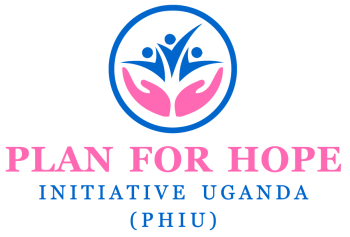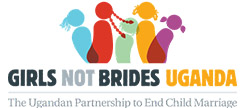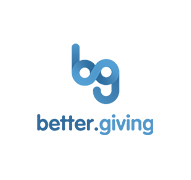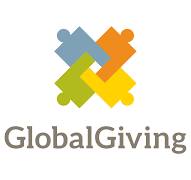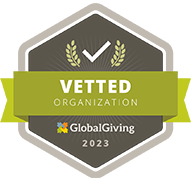Menstrual Poverty in Uganda: The Unseen Struggle of Girls
In Uganda, menstrual Poverty is a major concern, particularly for girls in rural and slum areas. The lack of access to sanitary products, coupled with menstrual stigma and shame, has severe consequences on their health, well-being, and education.
The Problem
Menstrual hygiene is a critical aspect of girls’ health and well-being. However, in Uganda, many girls lack access to sanitary products, forcing them to resort to unhygienic methods to manage their menstruation.
According to a study by the Ministry of Education and Sports, 70% of girls in Uganda use unhygienic materials, such as soil, banana fibers, and old clothes, to manage their menstruation. These materials are not only unhygienic but also cause discomfort, skin irritation, and other health problems.
Menstrual Stigma and Shame
Menstrual stigma and shame are major barriers to girls’ menstrual hygiene in Uganda. Many girls are taught to hide their menstruation, and some are even forced to stay home from school during their periods.
According to a study by the Uganda National Commission for UNESCO, 60% of girls in Uganda reported feeling ashamed or embarrassed during their periods. This shame and embarrassment can lead to isolation, low self-esteem, and poor academic performance.
The statistics on menstrual hygiene in Uganda are alarming:
70% of girls in Uganda use unhygienic materials to manage their menstruation. (Ministry of Education and Sports)
60% of girls in Uganda reported feeling ashamed or embarrassed during their periods. (Uganda National Commission for UNESCO)
50% of girls in Uganda miss school during their periods due to lack of access to sanitary products. (Ministry of Education and Sports)
Link to Education and Schools
Menstrual hygiene is closely linked to education and schools. When girls lack access to sanitary products, they are forced to miss school during their periods. This not only affects their academic performance but also perpetuates the cycle of poverty and inequality.
According to the Ministry of Education and Sports, 50% of girls in Uganda miss school during their periods due to lack of access to sanitary products. This not only affects their academic performance but also perpetuates the cycle of poverty and inequality.
High Taxes on Pads in Uganda
In Uganda, sanitary products are subject to high taxes, making them unaffordable for many girls. According to the Uganda Revenue Authority, sanitary products are subject to a 10% tax, making them one of the most heavily taxed essential items in the country.
This tax not only makes sanitary products unaffordable for many girls but also perpetuates the cycle of poverty and inequality.
Supporting Girls’ Menstrual Hygiene
To address the menstrual hygiene crisis in Uganda, we need to support girls with menstrual products and resources to advocate for policy change. You can support girls’ menstrual hygiene by donating sanitary products, such as pads and tampons, to organizations working on menstrual hygiene in Uganda. You can also support advocacy efforts to push for policy change, such as reducing taxes on sanitary products.
Supporting school-going and out-of-school girls with Menstrual Products.
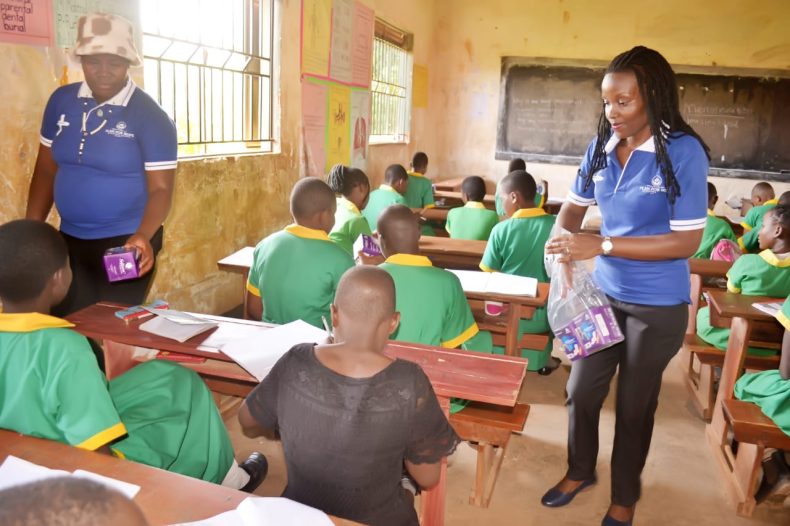
So many girls have been lured into sexual engagements for the sake of getting money to buy sanitary pads. And this has resulted in Teenage pregnancies, sexually transmitted diseases like HIV/AIDS, syphilis and other complications like, cervical cancer and fistula, and child marriages.
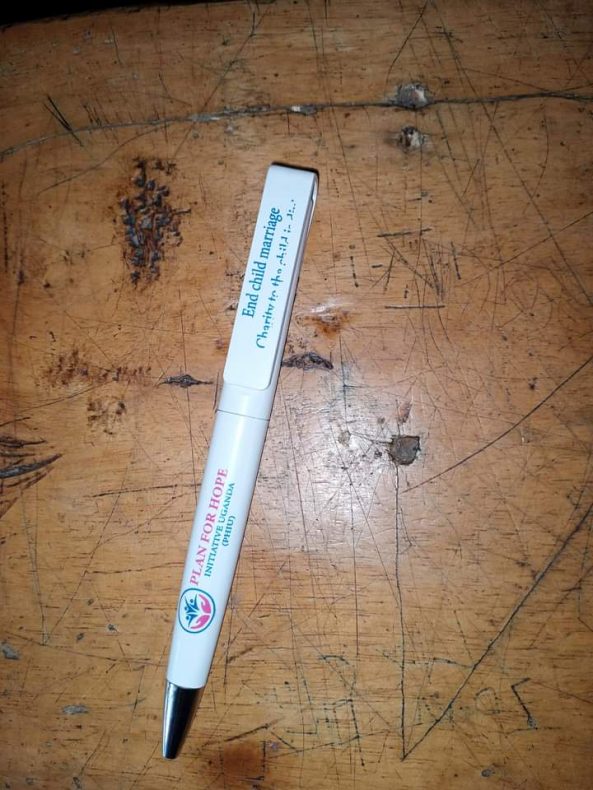
Why you should consider joining the movement to End Period Poverty with us
Girls who are supported with menstrual Hygiene products will not drop out of school. The number of girls who are falling victim to child marriage will be reduced.
Save girls from being exposed to diseases like infections and candida
Ending Menstrual Stigma promotes Gender Equality, whereby girls will be able to compete with boys without barriers. The movement will help in the retention of girls in school.
Girls who stay in school break the vicious cycle of poverty in their homes.
Supporting girls with menstrual products not only promotes their human dignity but also reduces the levels of school absenteeism. This means improved performance in their academics.
Ending period poverty means promoting the Physical and mental well-being of Women and Girls.
Help Women and Girls reclaim and gain their power and be able to attend to their Day Today Activities.
Supporting Girls with Menstrual Products means accelerating progress towards achieving Gender Equality.
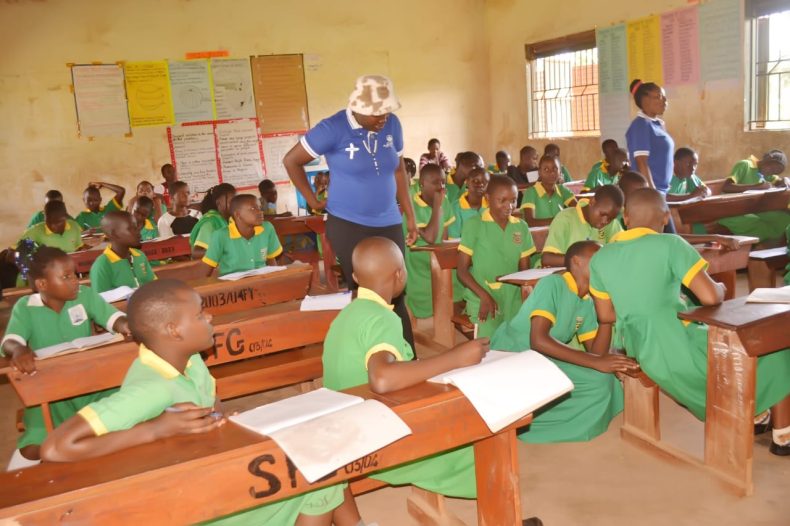
We all agree that by joining the movement to End Period Poverty and Breaking the Stigma around Menstruation, we are accelerating progress towards achieving Global Sustainable Development Goals like No Poverty (SDG1), Good Health and Well Being (SDG3), Education for All (SDG4) and Gender Equality (SDG5).
Please Donate to Support Women and Girls with Menstrual products.
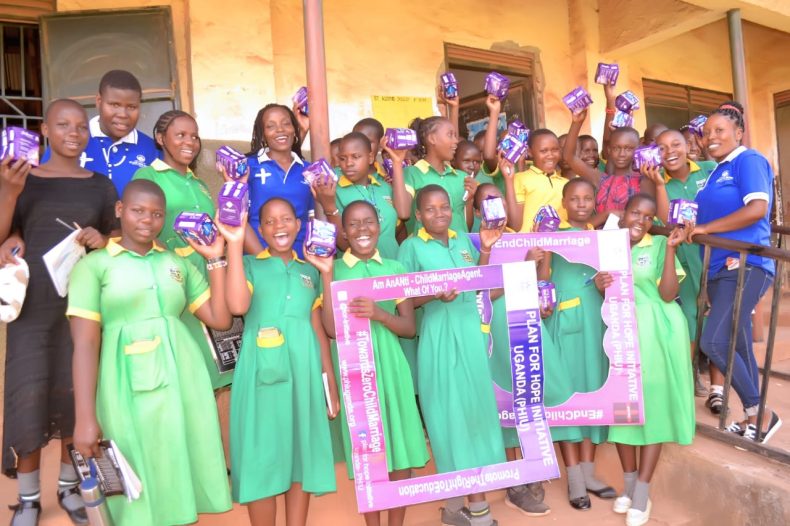
Menstrual Health and Hygiene Management
Supporting school going and out of school girls with Menstrual Products.
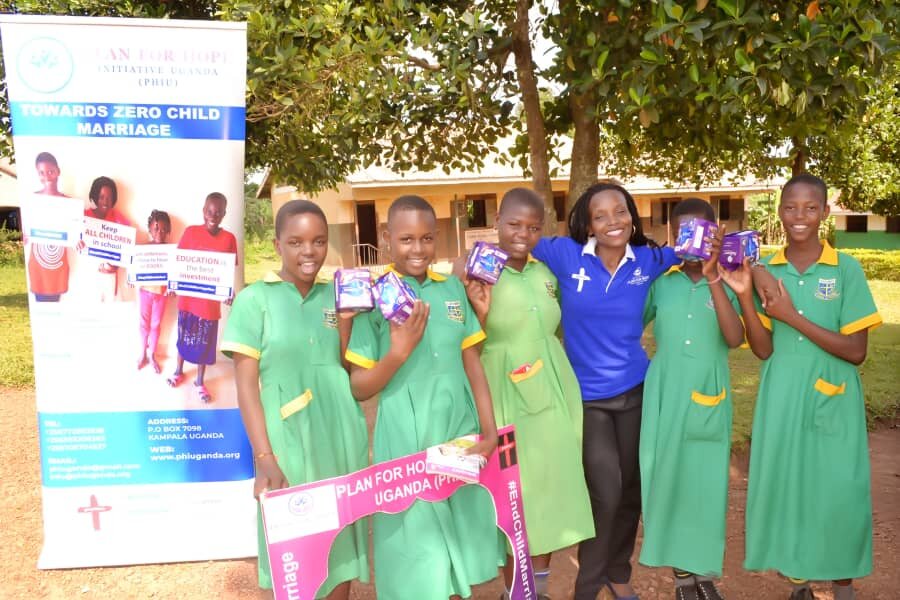
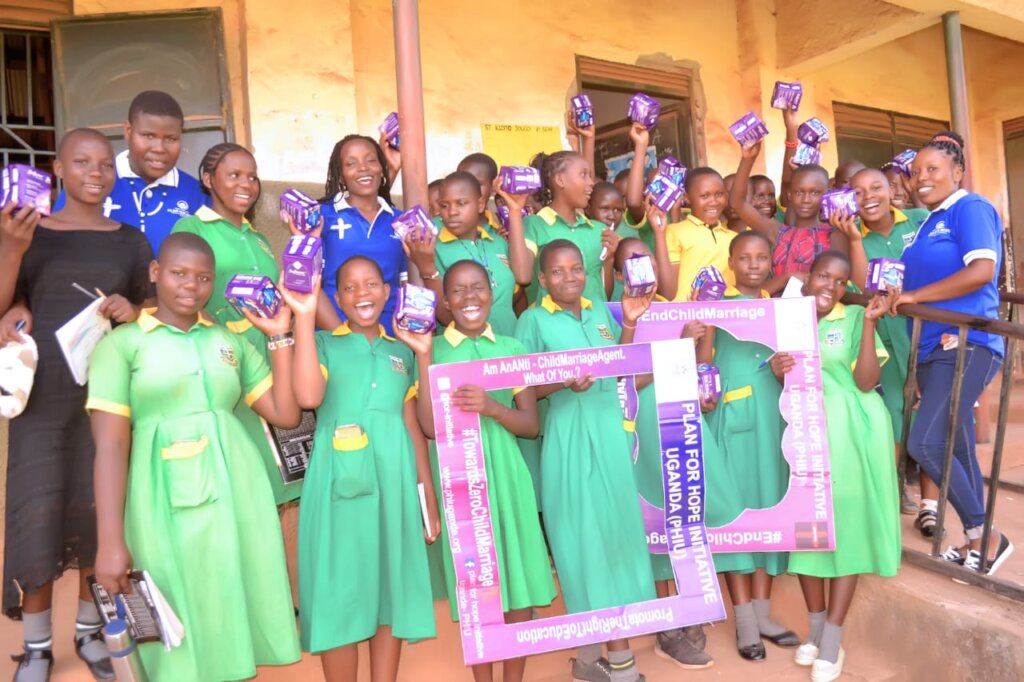
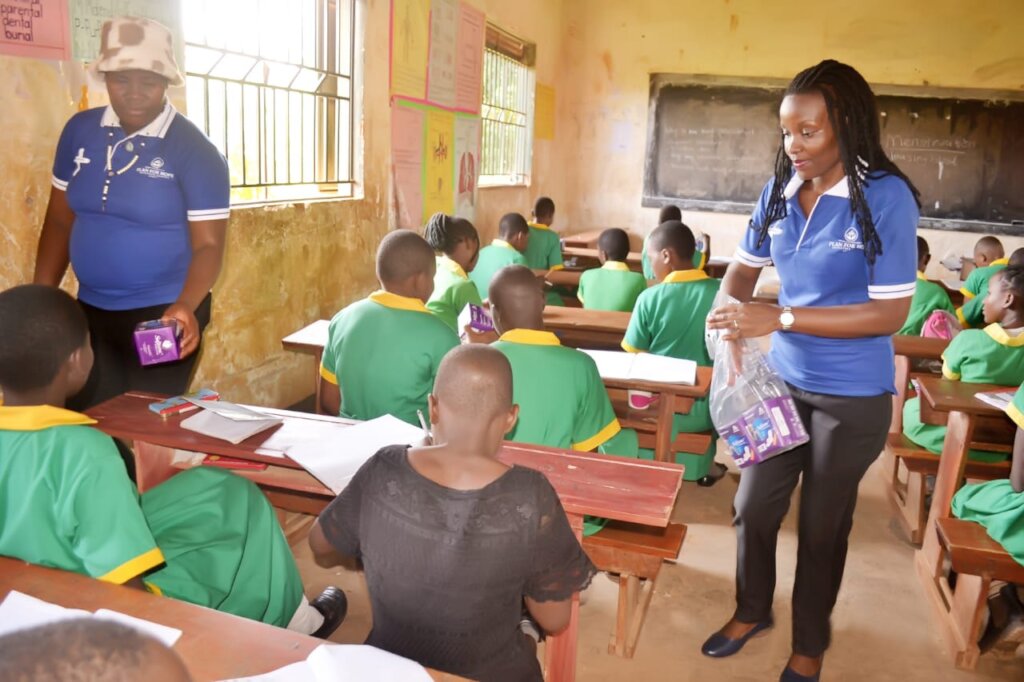
Please scroll to the right to see more photos.
